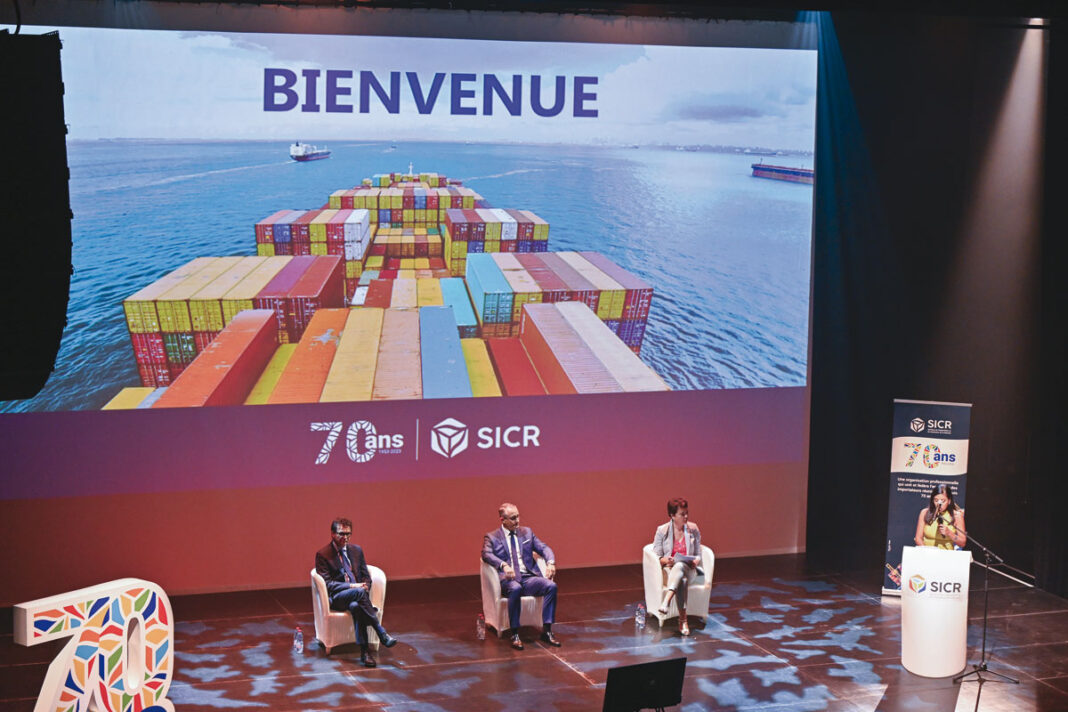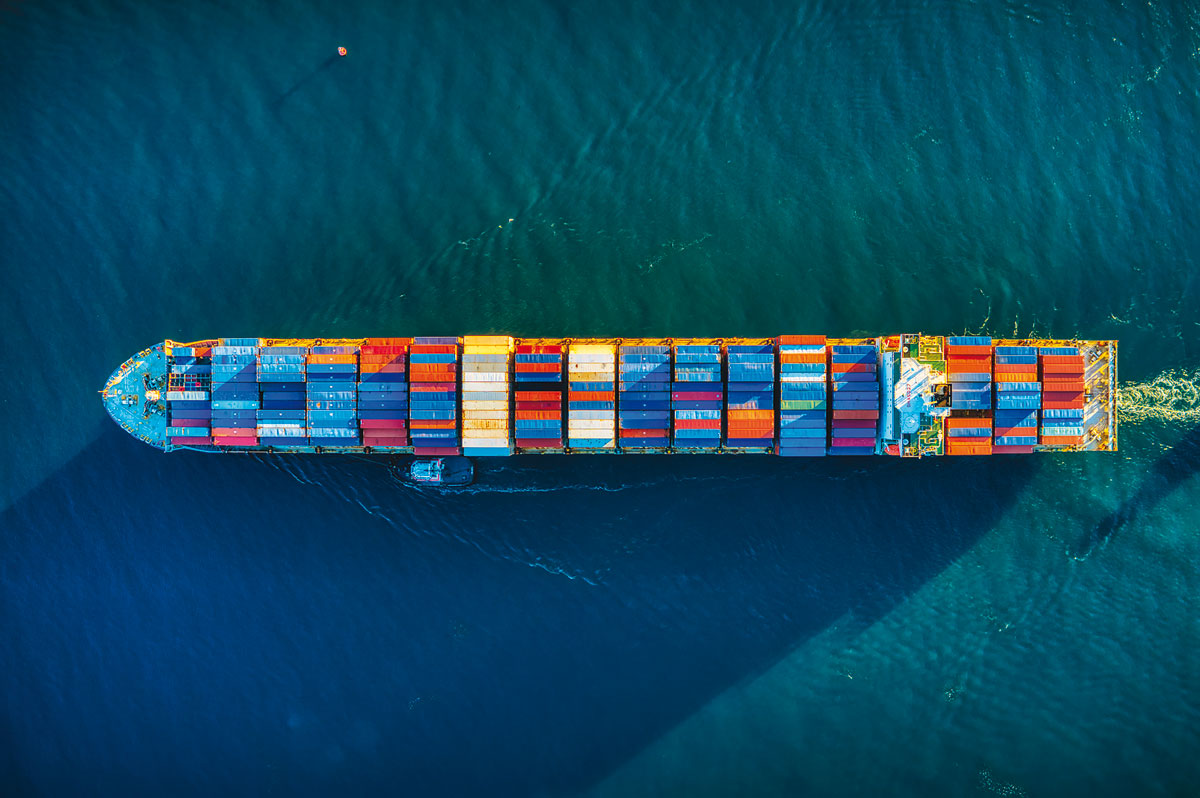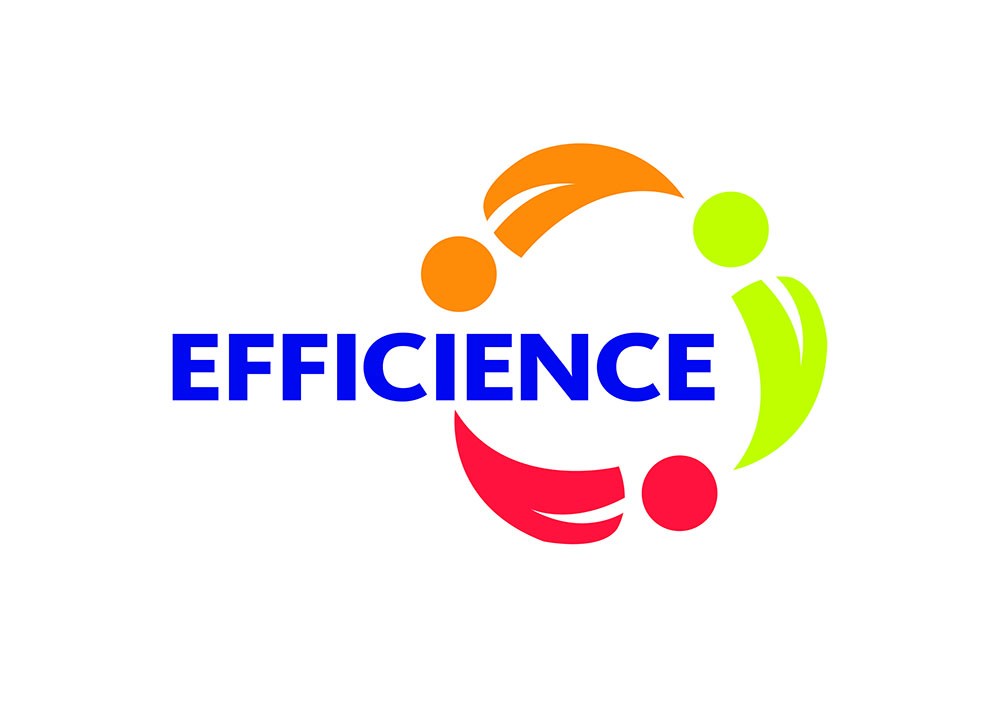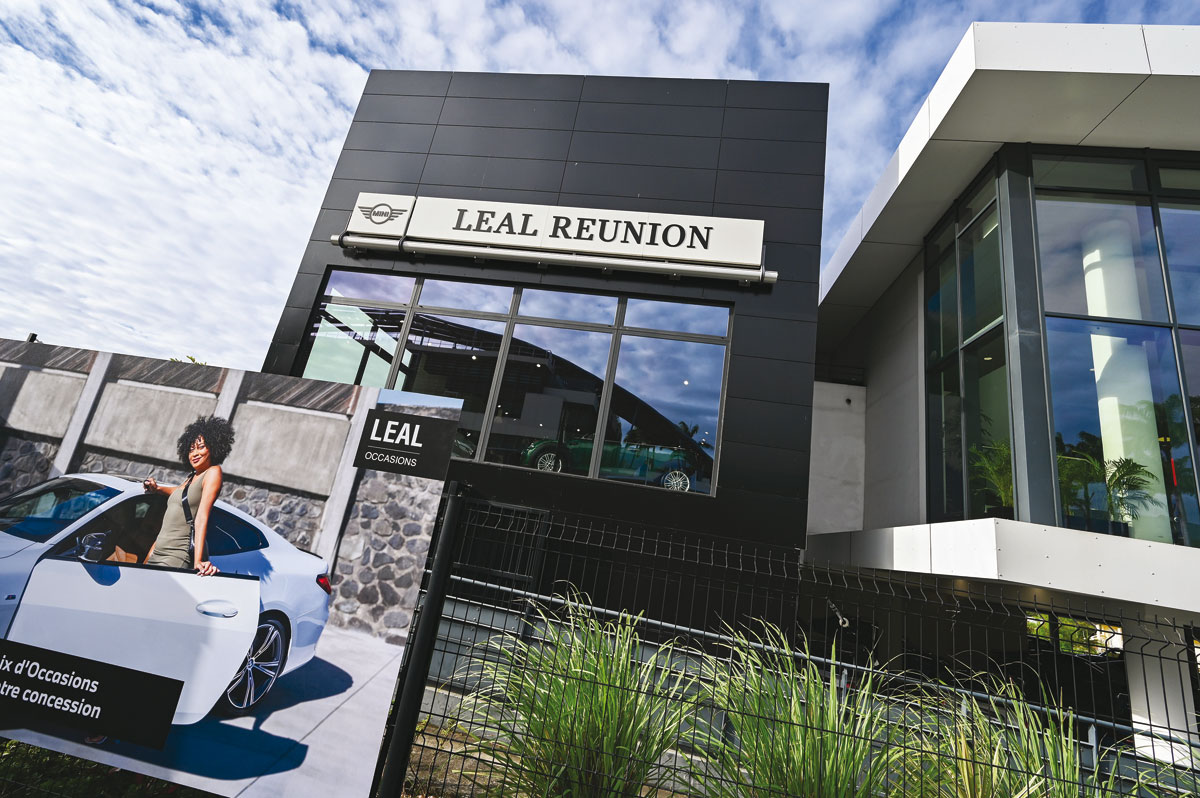Import, a full-fledged economic sector
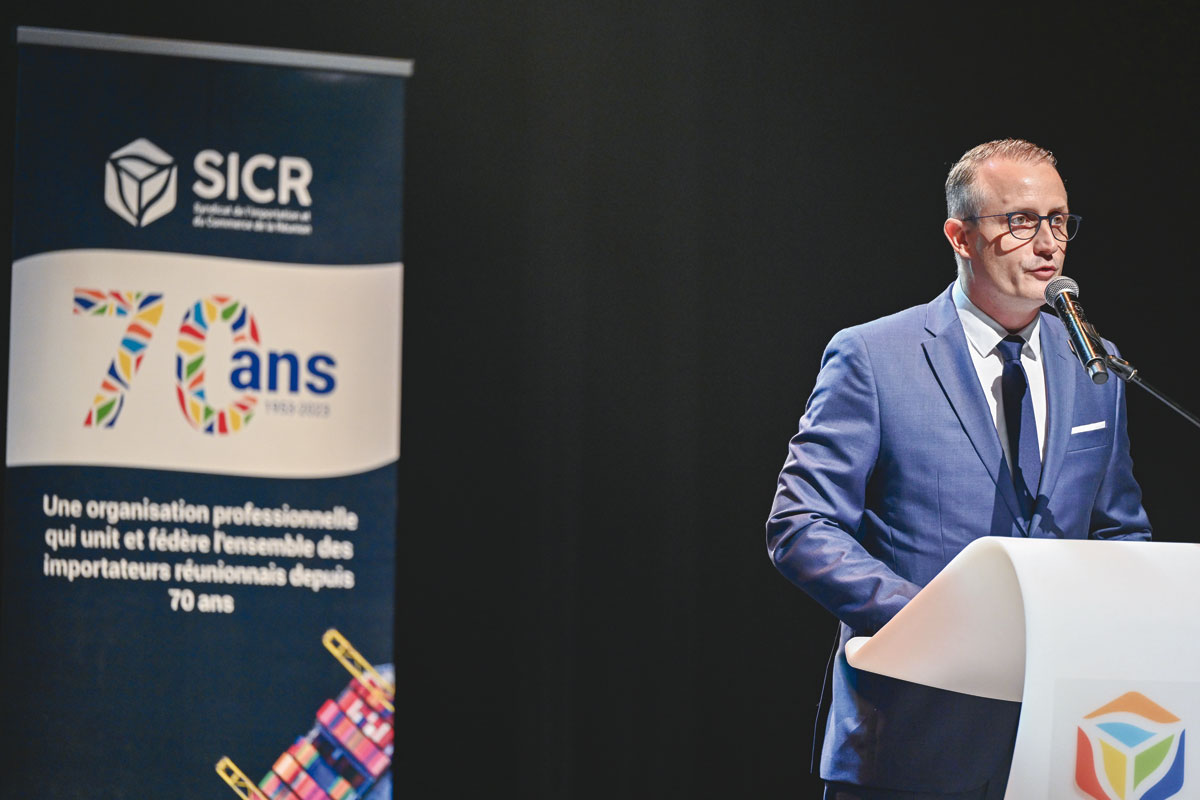
“Import is a sector for the territory in the same way as industry or agriculture. My goal is to have it recognized as such.”, announces Philippe-Alexandre Rebboah, elected to the presidency of the Reunion Island Import and Trade Union (SURE) in November 2022. Eighty percent of products consumed in Reunion are imported, or 6,2 billion euros (source INSEE 2021), there is no shortage of arguments justifying recognition of the primordial place that imports have in the local economy. We saw this clearly during the pandemic : working alongside local industry and public authorities, importers have largely contributed to preventing Reunion Island from suffering major shortages thanks to their stocks of goods. The notion of sector also appears evident in the role that the union has played for more than twenty years in the management of waste falling under extended producer responsibility. (REP), that is to say the end of life of the products. This mission, which has become strategic for the territory, now leads the SICR to promote circular economy solutions.. Federating group of private and public actors, le Cluster Green, created for this purpose on his initiative, is at the forefront of reflections on the subject.
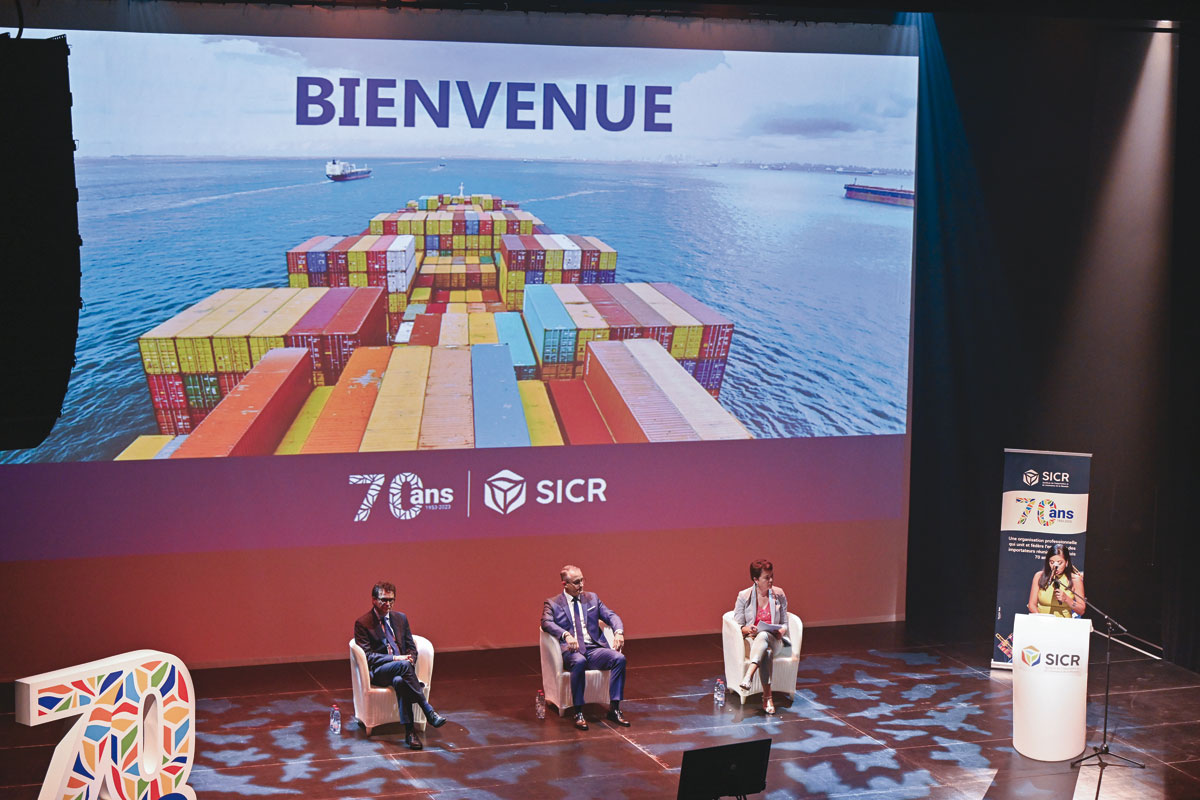
Meeting Leader : The SICR celebrated its 70th anniversary in June. What does the union represent today?, how many members does it have and does it continue to cater exclusively to importers in the commercial sector ?
Philippe-Alexandre Rebboah : The SICR celebrated its 70th anniversary this year. Created in 1953, it was initially a small group of wholesale importers. With time, the organism has grown and gained momentum. In 2023, the SICR has 136 members, the majority linked to import, supplemented by a few service companies in the environmental sector. From the 2000s, the union has included the environment in its union strategy with the sectors of extended producer responsibility. Today, the SICR is the local professional union with the most mandates from national eco-organizations, to which are added three local collective organizations whose creation he initiated : AVPUR for used tires, ATBR for batteries and ELVs Meeting for abandoned end-of-life vehicles. If the union is 70 years old, it is that he has been and remains up to the missions which are his.
Integrate waste management into an activity that, until then, was essentially about importation, was it a questioning ?
This shift was not easy. My predecessors had the vision of the growing needs of Reunion Island in terms of waste treatment. The creation of recycling channels was a very important moment in the life and evolution of the union. Today the SICR survives of course thanks to the contributions of its members., but also and above all the missions it carries out on behalf of eco-organizations.
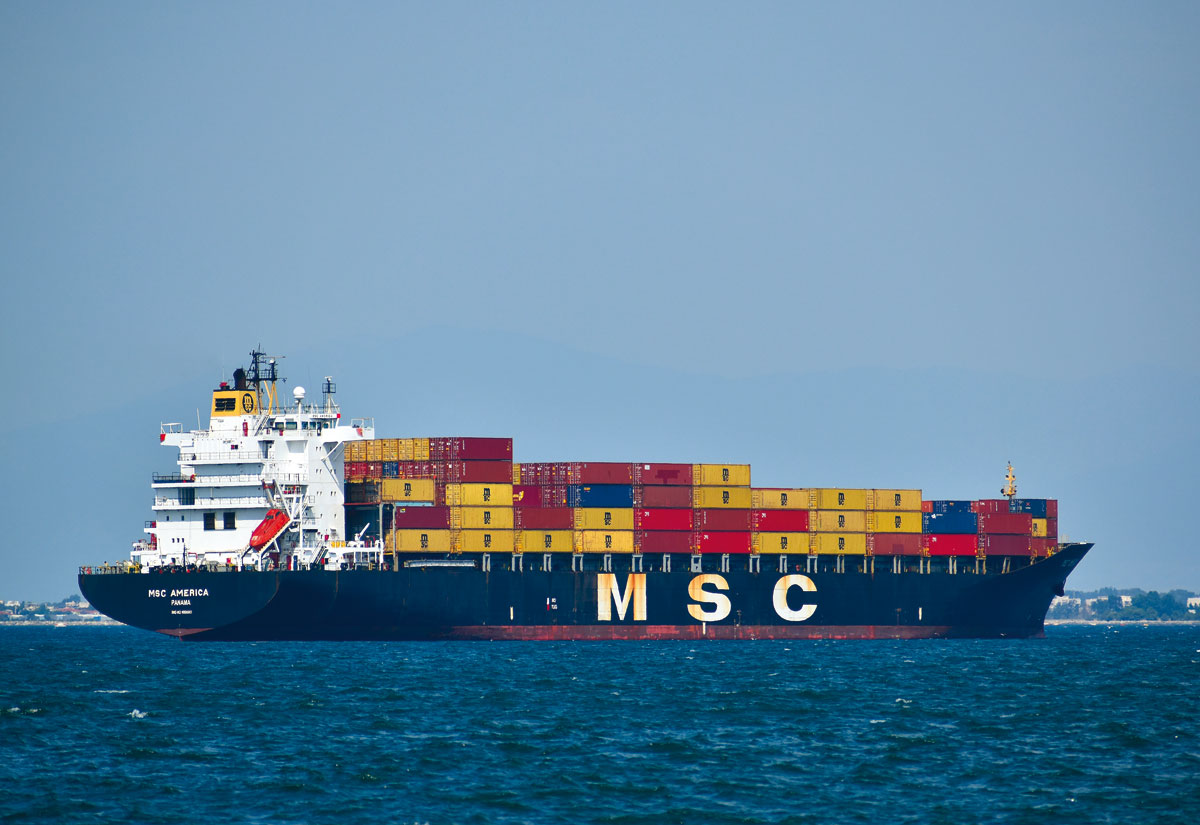
Are all Reunion trade companies members of the SICR? ?
Non, to my great regret… Companies that find an interest in it join the SICR. It is obvious that we seek to have as many members as possible. Unity is strength, and we are here to represent them, defend them, to have weight in discussions with the State and local authorities. Our goal is to provide them with a service that matches the importance of their role for an island territory like ours.. The work of importers is enormous and fundamental. As proof, I want 2020 where, in the middle of a pandemic, the people of Reunion continued to be able to obtain supplies because the importers had stocks of products and we were not in tight flow with mainland France. The added value of imports really took on its full meaning during the two and a half months of confinement by avoiding shortages and panic movements which are always possible as soon as things run out. The difficulties of this period were overcome thanks to the action of importers and local manufacturers.. Imports have shown that they are essential for the Reunion economy. In my opinion, it is a sector of the territory in the same way as industry or agriculture. My goal is to have it recognized as such.
Boats not running on biofuel will have to slow down their speed to emit less CO2.
What are the missions assigned to the union? ?
Our activity has three components. The REP sector component is the best known, because the most publicized. The Cluster Green component extends this visionary side of the environmental needs of the territory by pursuing the objective of the circular economy. But the purely union aspect remains at the heart of our activity at the service of our members. : competitive intelligence, regulatory and legislative monitoring, discussions with public authorities and communities to prepare for tomorrow’s Meeting. To cite the most recent example, we participate in the discussion on price construction in Reunion, we are included in the Price Observatory round table, margins and revenues from Reunion Island. Imports providing 80% of what Reunion Islanders consume, it is normal that we make our contribution to the building of transparency in the current inflationary context. Our strength, have strong members from the distribution sector, gives us credibility and legitimacy. The goal is not to pull the rug out for yourself, but to be a responsible actor, to be a force of proposal. As economic actors, We provide our clarifications in this discussion, our fears, our doubts, our hopes. We draw attention to the risk of making too rapid and radical decisions, which will generate more problems than they solve.
Within the three professions of the SICR — commerce, the car, vehicle rental – we see that the automobile occupies a special place. Why this distinction ?
Historically, 100% of the automotive profession, all dealers and distributors, joined the SICR. The fact that, for twenty-five years, the SICR had a president from this sector in the person of Frédéric Foucque, to weigh. The SICR has thus become representative for negotiating the collective agreement for the automobile sector at the local level with the social partners.. two years ago, we also obtained representation to negotiate the collective trade agreement. This unity that we have succeeded in creating in the automobile industry, we would like to do it with all brand importers.
A SURE place, it is also a training offer. What does this offer consist of and who is it for? ?
Our training organization, Learn more, is Qualiopi certified. The goal is to meet the training needs of our members. In the case of automobiles, we trained young salespeople, mechanics to technological developments in the profession. Other training focused on financing, on negotiation techniques, etc. The training offer is à la carte. Needs come back to us from the field and we respond to them either directly or through experts in the fields concerned..
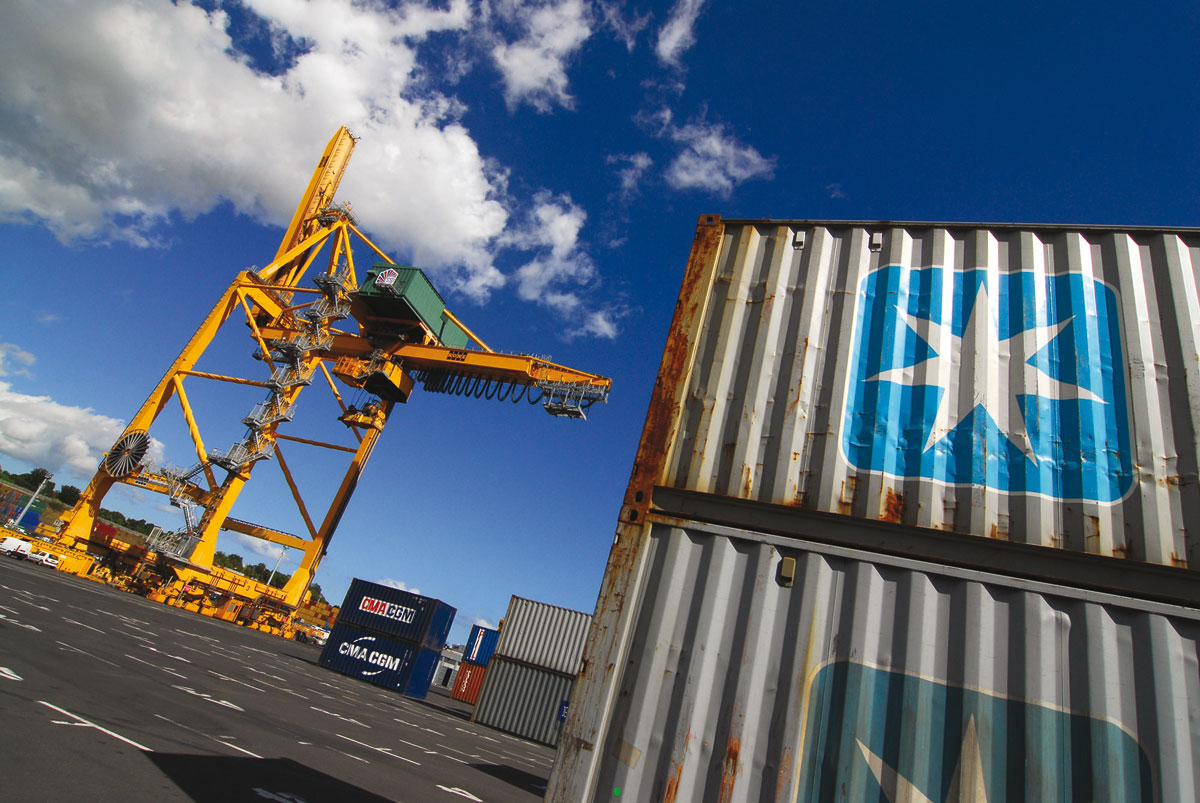
In June 2021, your predecessor sounded the alarm on cost increases and the scarcity of maritime freight, citing a +30% jump in freight from Europe ! Where are we today, Are things back to normal? ?
The situation has changed radically. We are no longer at all in the problem of the era when, with global demand having exploded, freight availability and pricing were heavily impacted. Reunion found itself the poor relation, a little left out, in this context. We have returned to an almost identical situation to that of 2019 : the difference, in terms of freight costs with Europe, is currently 10% to 15%. But the question that now arises, This is how to prevent such a situation from happening again ? We must work on the lessons of this crisis. for example, if freight has become affordable again, we still need to have a port that remains open and accessible. Since the start of 2023, the port was closed for more than a fortnight due to social movements. With the different stakeholders working on the port, we drew attention to the consequences of this state of affairs. These closures have a direct impact on freight and therefore on goods. Containers that could no longer come to Reunion Island were unloaded in South Africa or Mauritius. We had to recharge them and bring them back here. Recovering from a delay due to a port closure takes a week to ten days. This leads to additional costs which are necessarily reflected in product prices.. That is why, by disrupting the value chain, blockages contribute to the cost of living. Another development to prepare for, it is that of international freight affecting the size of boats and transport times, which will become a little longer towards the metropolis.
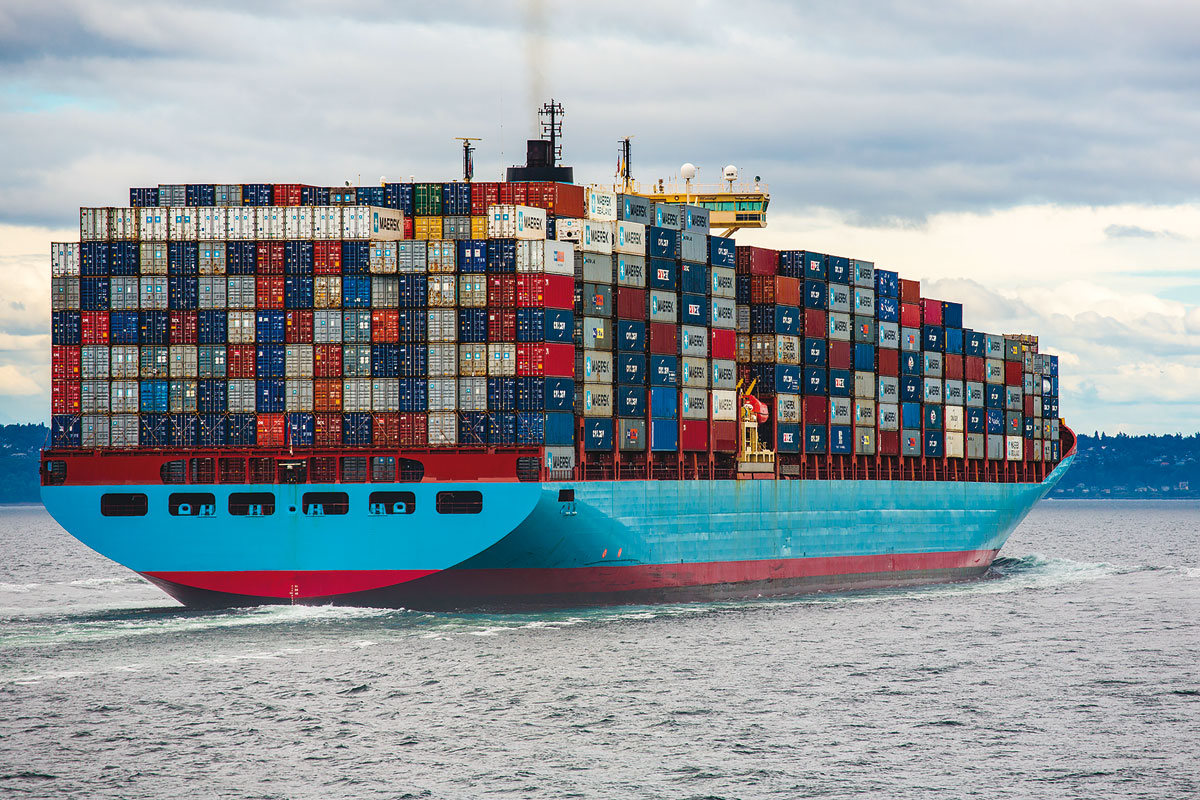
That's to say ?
We are living in a period of change and optimization of maritime transport and port infrastructure worldwide.. This issue impacts the entire import chain. Should we have two boats with a container on each or a larger boat with a single container? ? The answer seems obvious, but it also depends on port infrastructure. During the pandemic, many shipping companies have ordered larger and larger ships, which will allow them to achieve economies of scale in maritime transport. These superchargers are starting to be delivered. These boats emit less CO2 also because they run on biofuels. At the dock, they are plugged into a power supply to avoid leaving their motors running. Will the port of Reunion be able to accommodate them? ? If this is not possible, we need to think about other freight solutions. Transport times will increase due to the carbon footprint of boats that do not run on biofuels. They will have to reduce their speed to emit less CO2. The transit time to the mainland will therefore lengthen a little with, in endorsement, consequences on the management of stocks of goods and on the conditions of their storage. But there are already not enough warehouses, and not enough land to build on, in the meeting. Warehousing costs are high. At the end of the chain, the consumer suffers the consequences. In close collaboration with the State and communities, we work to ensure that land is made available to freight forwarders, logisticians, importers, in order to reduce these costs as much as possible.
However, inflation in Reunion is lower than that in mainland France.. Do importers play a role in this state of affairs? ?
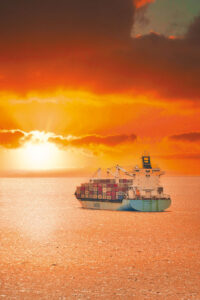
When did these big price increase concerns arise?, most importers did not pass on some or all of these increases because they were bound by contracts and could not change prices midstream. Most importers absorbed these additional costs into their margins. They therefore have, in the vast majority, helped slow inflation. But other measures taken locally have made it possible to combat rising prices. Industrialists played a very important role. It is the common effort of all economic players that allows inflation in Reunion to be two to three points lower on average than that of mainland France..
Have repeated crises changed the import and logistics professions? ?
The profession has evolved with the territory and society. Just look at the tonnages imported. In 1953 : 218 tonnes of air freight and 350,000 tonnes of sea freight. In 2022 : 20,000 tonnes of air freight and 5,6 million tonnes of sea freight ! The population of Reunion is approaching 900,000 inhabitants, consumption patterns are changing, new needs appear, new products continue to be created. The profession of importer is also evolving with regulations. Storage standards are becoming more and more stringent. We must now anticipate situations like those we experienced during the pandemic, avoiding the pitfalls of over- and under-stocking.
Maritime transport benefits from advantageous taxation per tonnage transported, which protects companies in this strategic sector, but does not encourage them to improve their carbon footprint. Importers being concerned by the carbon footprint of the goods they import, Don’t they have a say in this debate? ?
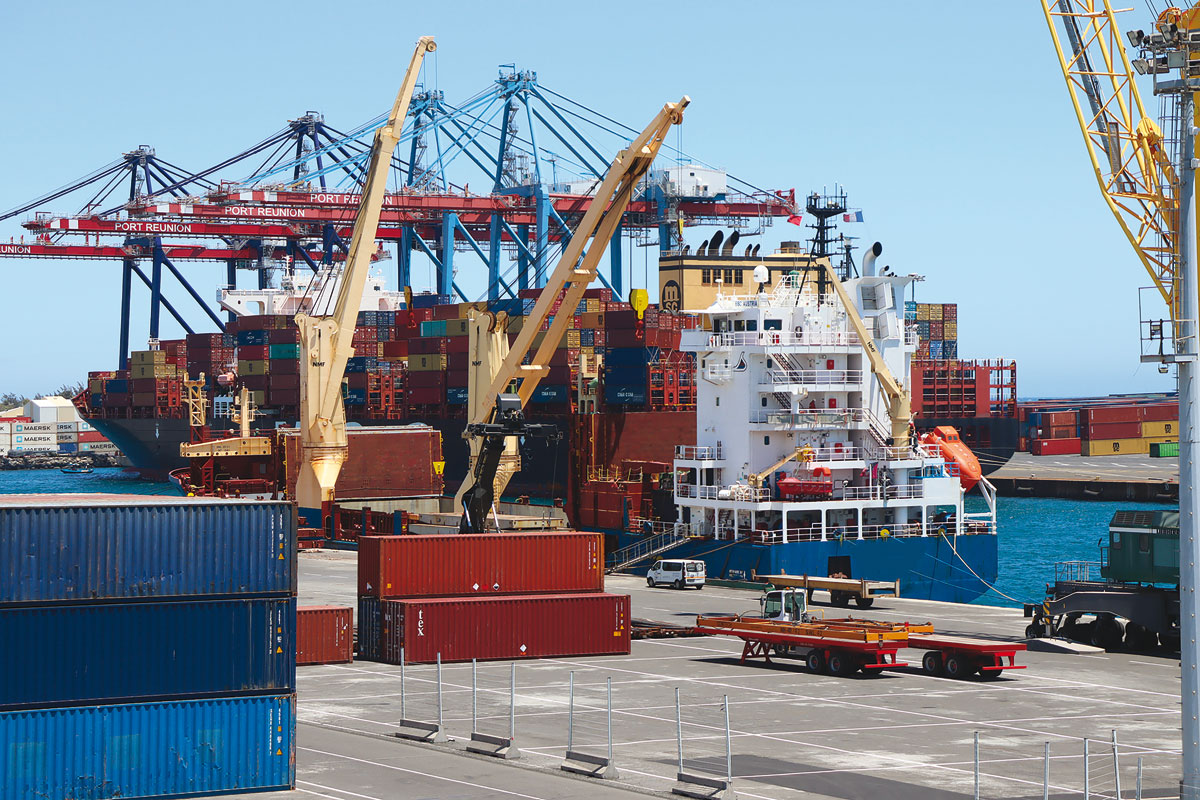
We must consider this question in its broadest spectrum : importer or not, member of the SICR or not, we are all faced with the need to know how much CO2 we emit and to question what we are doing to reduce these emissions. The role of the SICR is to support this change. Many economic projects go in the direction of ecological and energy transition, they make the business of importers evolve. I'm thinking about the arrival of electric vehicles, a revolution for the territory, which involves increasing the number of charging stations. We will have to manage the recycling of lithium batteries from electric vehicles. We must participate in the reflection on the energy autonomy of Reunion Island. And then there are all the REP sectors that we must develop in order to avoid saturating the territory with waste.. The battery industry shut down for many months because shipping companies refused to charge lithium batteries due to the risk of fire. The region, shipping companies, eco-organisms, we sat around the table to find a solution. It’s done today. We also work in close collaboration with ADEME on all these subjects..
How is the annual report of the REP sectors presented? ?
The REP sectors collected, in 2021, a total of 54,000 tonnes of waste. We are waiting for the figures for 2022. The action taken is of quality, this is why eco-organizations trust us and are more numerous each year to join us. However, I find this result a little frustrating., because it does not allow us to fully measure the effectiveness of the work carried out. This is another discussion that we are having with the State, the Region, Customs : what the waste collected represents in relation to the volumes of products entering the territory ? We do not yet know this because of the customs classifications which are designed by product families. These families bringing together products that correspond to different waste, a long process of identification and comparison will have to be carried out. We are currently looking to see how to simplify it.
Has the problem of shipping hazardous waste for disposal in mainland France been resolved? ?
As a reminder, a boat financed largely by public funds left the port of Pointe des Galets at the end of October 2022 with 5,000 tonnes of hazardous and non-hazardous waste. We have confirmation that a new boat will leave Reunion at the end of October or beginning of November with, on board, used oils, lead acid batteries, asbestos, dirty sludge, plastics, batteries… This boat chartered by the company Mer Union is exclusively financed with private funds. It will also transport goods. This new shipment will reduce pressure on hazardous waste storage sites, without the help of the State and the Réunion Region. As freight has become available again and its costs have fallen, we are able to self-finance this new expedition. We are proud to have been able to contribute to solving this problem.. Since the health crisis, around ten containers of hazardous waste are exported each rotation by the company MSC. The other good news is that MSC will continue to take our waste and that CMA-CGM will also take it. We are returning to a normal situation, and hazardous waste will now be shipped to mainland France with much more regularity and fluidity. Furthermore, at the beginning of 2024 will open a lead-acid battery processing center in Saint-Pierre. This means that the SICR not only works on waste disposal, but on more sustainable local circular economy solutions. The Meeting must move away from the “I matter, I consume, I throw away”. What is waste for one can be a resource for another. Many projects are under study, and the SICR is part of all these exchanges.
No and 2012, Cluster Green is not only aimed at importers and traders. What role does it intend to play in the Reunion economy? ?
The Green Cluster was created by the SICR, but it is aimed at all economic actors, private and public. It is a group committed to promoting social and environmental responsibility and which encourages circular economy solutions.. Cluster Green intends to promote good practices. He is at the origin of the Efficience label, a local label whose ambition is to become a distinctive sign of commitment. My ambition is for this label to take on great importance., that it becomes the reference for shared values, that it is essential in both private and public calls for tenders, so that all together, communities, service company, industrial, tradespeople, importers, we were taking this turn towards environmental and societal responsibility and the circular economy. For young people too, this label would make sense. A young person looking for a job would know that an Efficiency-certified company meets their expectations.
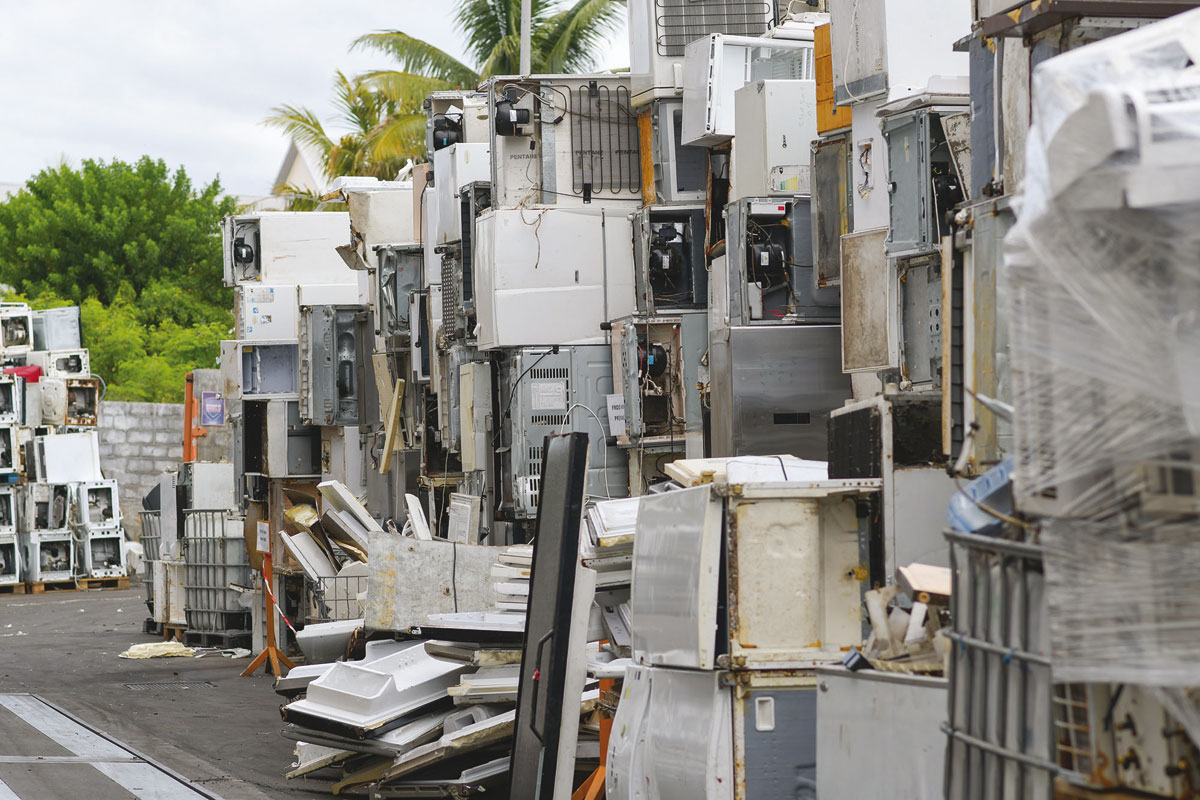
How is Cluster Green perceived in the economic community? ?
He has a very good reputation, but the Efficience label is still too little known. We need to give it more visibility. This was the aim of our participation last month at the Lokal show, during which the public transport company Semittel received its Efficiency label. ADIR and MEDEF Réunion have joined the Green Cluster in order to in turn be a source of proposals for their members. They will allow us to disseminate our information more widely., to increase the exchange of good practices, and thus take the Reunion territory in the right direction.
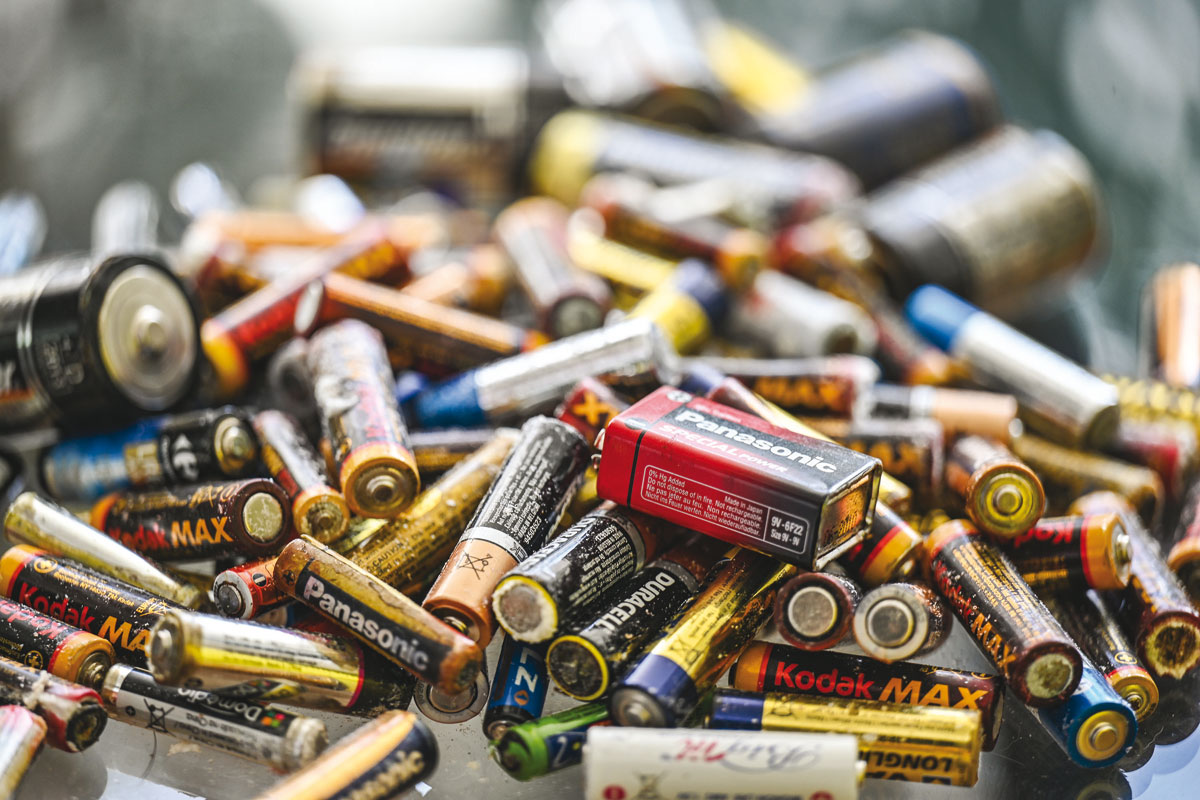
THE REP SECTORS
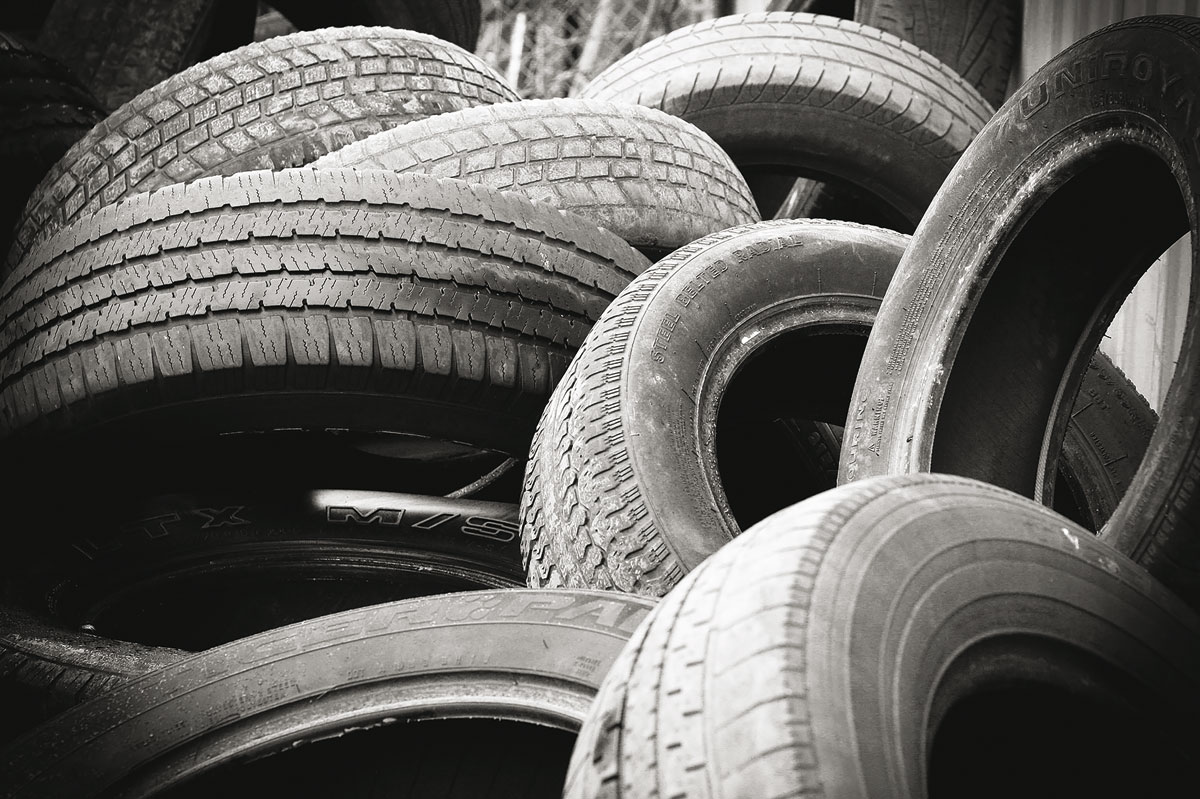
The SICR is at the origin of three local collective organizations :
– ATBR (automotive and industrial accumulators).
–AVPUR (used tires).
– VHU Réunion (abandoned end-of-life vehicles).
In 2023, the SICR assumes a mandate as facilitator for national eco-organizations :
– Corepile (portable batteries and accumulators).
– Cyclamed (unused medications, for human household use, expired or not).
– Cyclevia (mineral oils).
– Ecologic (WEEE, sports and leisure articles, thermal DIY and garden items).
– Eco-house (household furniture and DIY and garden items, games and toys, construction products and materials from building or PMCB).
– Ecosystem (Household and professional WEEE and lamps).
– PYReO (maritime safety pyrotechnic products).
– Soren (photovoltaic panels).
– Valdelia (non-household furniture).
Efficiency : the CSR label of Reunion Island
On the occasion of the Lokal exhibition, Cluster Green handed over, September 8, the certificate of the Efficience label to the mixed economy company Semittel, operating the public transport networks of the CIVIS and CASUD urban communities.
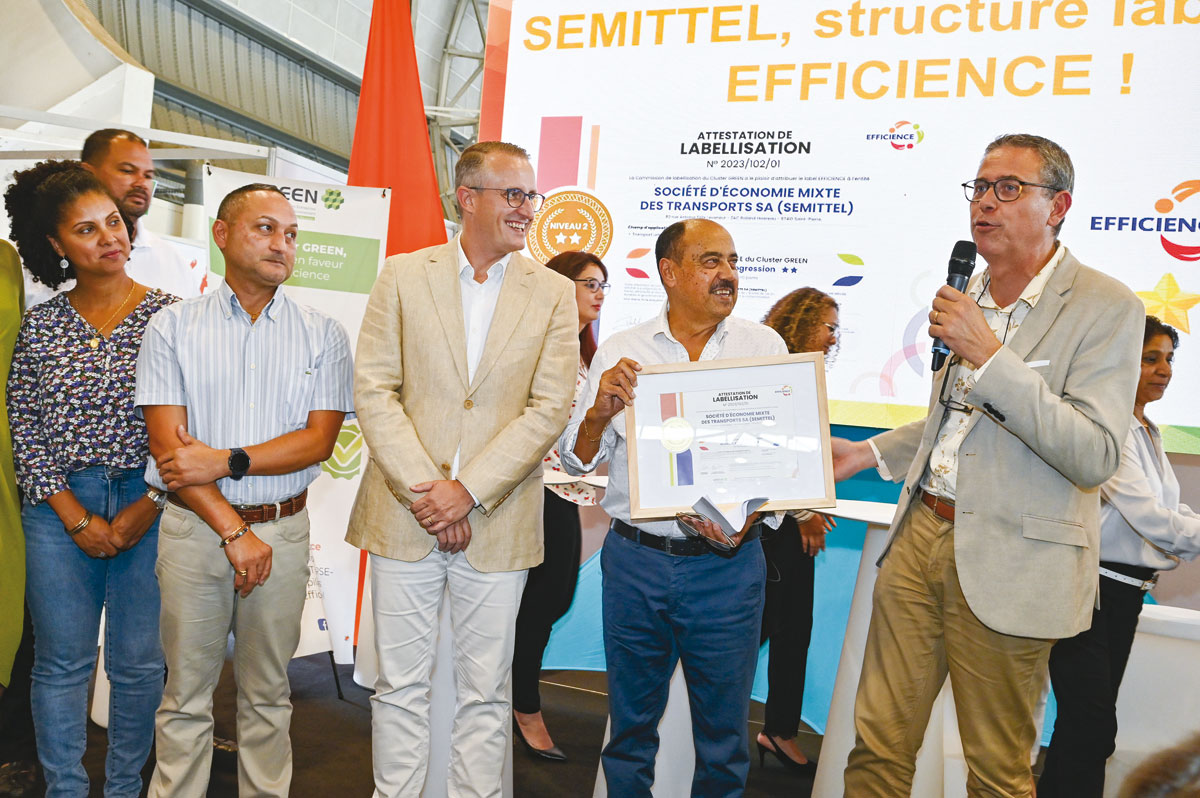
Designed by Cluster Green, the Efficience label is a local CSR label which takes ISO 26000 as its basis (social responsibility). The five pillars of the label are quality and living conditions at work, attractiveness and territorial anchoring, environmental progress, sustainable production and consumption, governance and CSR strategy. Its repository was built with the help of institutions, of companies belonging to the Cluster, d’experts, to integrate criteria that meet the challenges of the Reunion area. The partners of the Efficience label are ADEME, the AKTO skills operator, the National Agency for the Improvement of Working Conditions and its regional branch (ANACT-ARACT), the Department of Economy, employment, work and solidarity (DEETS) and the Réunion region. Semittel is the third organization to receive the Efficiency label after Air Austral and the SICR. Around ten other candidates are in the running.
SICR HIGHLIGHTS
- 1953 : birth of the Traders Union.
- 1970 : the Traders’ Union is behind the creation of Intermétra, occupational medicine association.
- 1971 : the Traders' Union becomes the Union of Wholesale Importers of Reunion Island (VICTORY).
- 1972 : the union participates in the creation of the COLIER (Reunion Economic Interests Liaison Committee), now MEDEF Réunion.
- 1975 : the union contributes financially to the establishment of ARIBEV inter-professional associations (bovins) and ARRIVAL (poultry).
- 1997 : SIGR becomes the Réunion Import and Trade Union (SURE).
- 2000 : place SURE “includes environmental responsibility in its union strategy in order to help importers-distributors meet their regulatory obligations in the management of waste falling under extended producer responsibility (REP).
- 2011 : the SICR creates the company Services de l’importation et du commerce de La Réunion to offer its members services in the fields of training and the environment.
- 2012 : the SICR initiates the Green Environment Cluster project (Group of companies committed to the environment), whose ambition is to make the environment a driver of economic and societal development for Reunion Island.
- 2018 : Cluster Green launches the Efficiency label.
Philippe-Alexandre Rebboah : a career in BMW
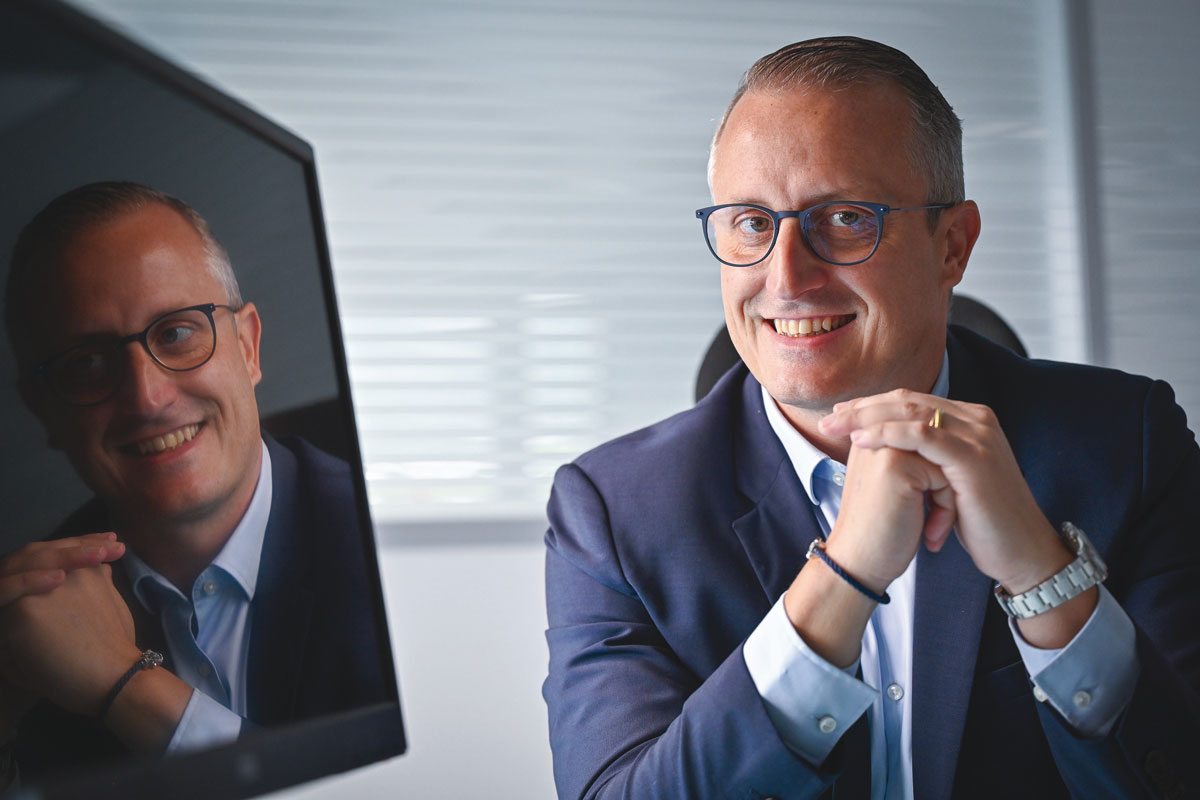
Phillipe-Alexandre Rebboah has spent his entire professional career serving the famous automobile brand, climbing the ranks and crossing sea and ocean to today occupy the highest positions within BMW distribution in Reunion. Arrived on the island as sales manager at BMW, he becomes commercial director, then general manager when the BMW card was taken over by the Leal group in 2013. In the meantime, Philippe-Alexandre Rebboah has resumed his studies. He graduated with a master’s degree from ESSEC. He was appointed to the general management of the holding company of the Leal Réunion group in 2022, after the Mauritian group took over the distribution of the brands of the world leader in spirits, Diageo. Philippe-Alexandre Rebboah was elected president of the SICR on November 24, 2022.


